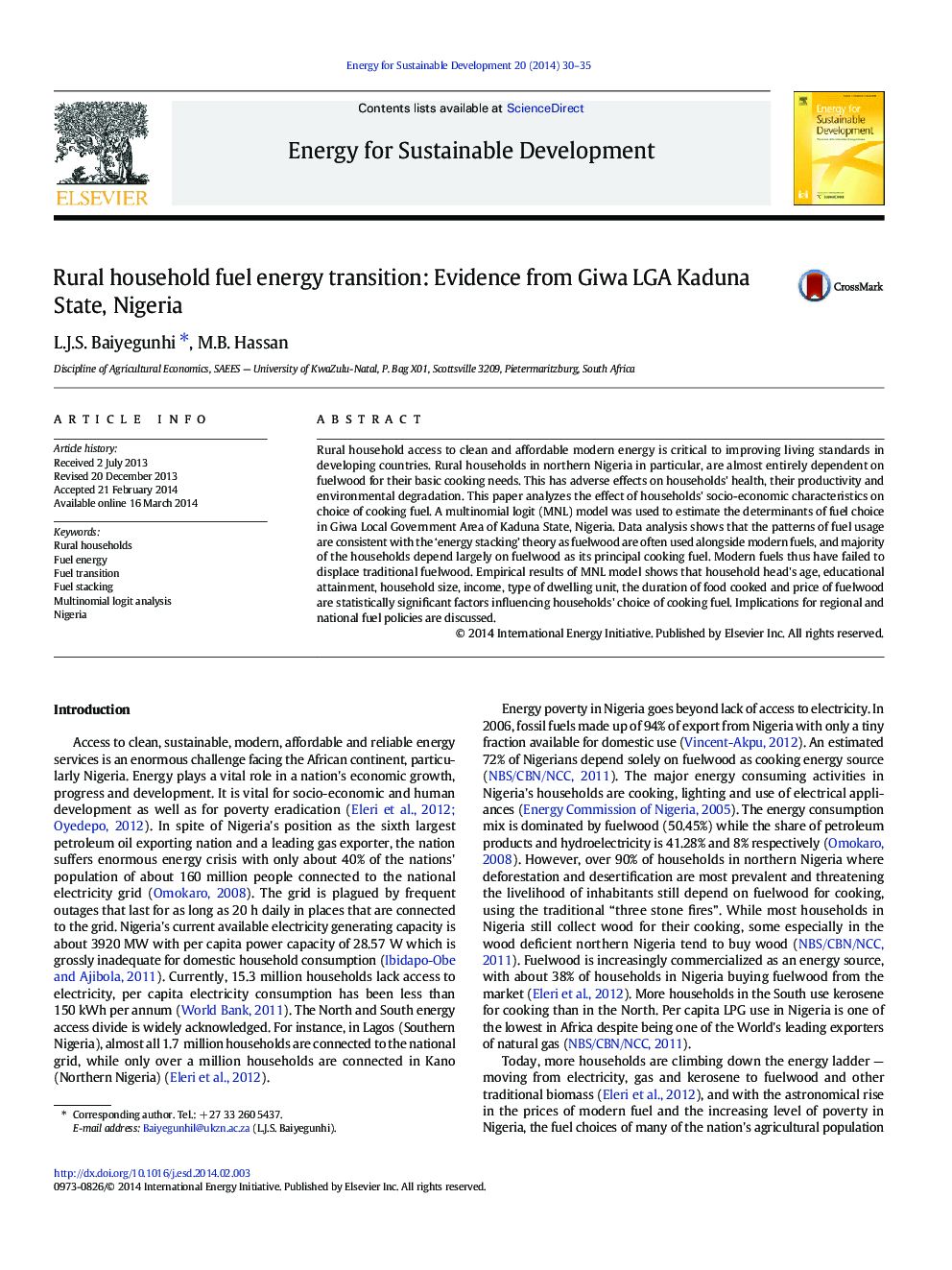| Article ID | Journal | Published Year | Pages | File Type |
|---|---|---|---|---|
| 1046844 | Energy for Sustainable Development | 2014 | 6 Pages |
•Fuel usage is consistent with in part with the ‘energy stacking’ theory.•Fuelwood is the main cooking fuel and is often use alongside modern fuels.•Modern fuels thus have failed to displace traditional fuelwood.•MNL results shows that age, education, household size, income; dwelling unit type; duration of food cooked and fuelwood price are factors influencing choice of cooking fuel.
Rural household access to clean and affordable modern energy is critical to improving living standards in developing countries. Rural households in northern Nigeria in particular, are almost entirely dependent on fuelwood for their basic cooking needs. This has adverse effects on households' health, their productivity and environmental degradation. This paper analyzes the effect of households' socio-economic characteristics on choice of cooking fuel. A multinomial logit (MNL) model was used to estimate the determinants of fuel choice in Giwa Local Government Area of Kaduna State, Nigeria. Data analysis shows that the patterns of fuel usage are consistent with the ‘energy stacking’ theory as fuelwood are often used alongside modern fuels, and majority of the households depend largely on fuelwood as its principal cooking fuel. Modern fuels thus have failed to displace traditional fuelwood. Empirical results of MNL model shows that household head's age, educational attainment, household size, income, type of dwelling unit, the duration of food cooked and price of fuelwood are statistically significant factors influencing households' choice of cooking fuel. Implications for regional and national fuel policies are discussed.
